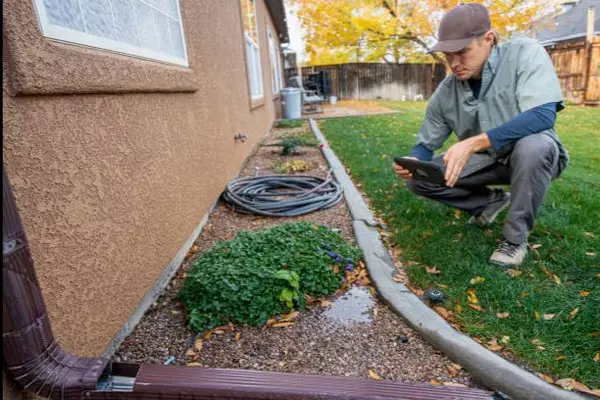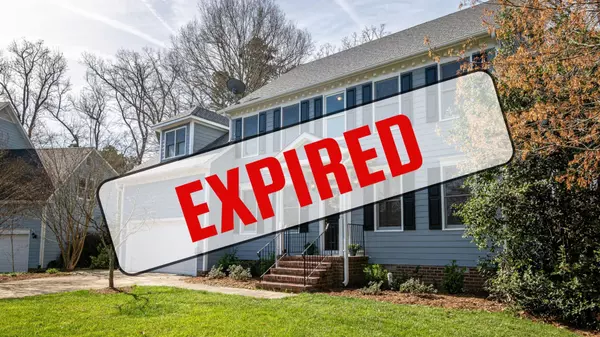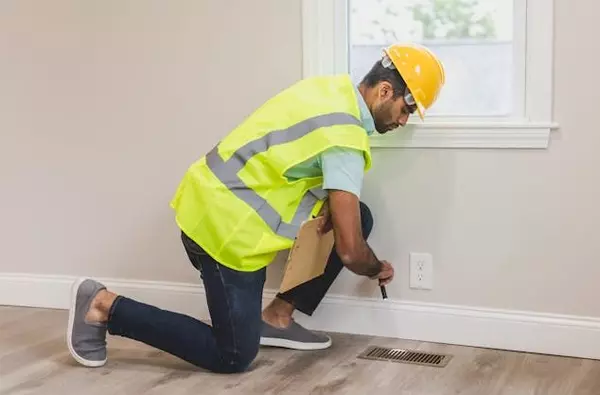Don't Tie the Knot Without a Home Inspection: Why It's Essential for Homebuyers

The Importance of a Home Inspection When it comes to buying a home, one of the most critical steps is the home inspection. Some buyers might be tempted to cut corners or save money by skipping this step, but that could be a costly mistake. A home inspection is not just a formality—it's an opportunity to get to know your future home inside and out, to learn its quirks and qualities, and to ensure that you're making a wise investment. Educational Experience Think of a home inspection as an educational experience. It's your chance to walk through the property with a trained professional who can point out not just the obvious issues but also the subtle signs of wear and tear that could become bigger problems down the road. By attending the inspection and asking questions, you'll gain valuable insights into the condition of the home and what it will take to maintain it in the future. Uncovering Hidden Issues A thorough home inspection can uncover a wide range of issues, from minor maintenance issues to major structural concerns. While no home is perfect, knowing about these issues upfront allows you to make an informed decision about whether to proceed with the purchase and gives you the opportunity to negotiate with the seller if repairs are needed. Getting to Know Your Potential Home But a home inspection isn't just about finding problems—it's also about getting to know your new home. The inspector can show you where the water shut-off valve is, how to change the air filters, and other important maintenance tips that will help you keep your home in top condition for years to come. Should You Or Should You Not Hire A Home Inspector? So, when it comes time to buy a home, don't skimp on the home inspection. It's your chance to get to know the house, learn its quirks, and ensure that you're making a smart investment. By taking the time to attend the inspection and ask questions, you'll not only protect yourself from costly surprises but also gain valuable knowledge that will help you enjoy your new home for years to come.
Read MoreTo Buy or to Rent? Navigating the Real Estate Dilemma

Cost Considerations In today's real estate market, potential homebuyers face a significant dilemma: whether to buy a property or continue renting. While both options have pros and cons, it's crucial to consider various factors before deciding. Building Equity vs. Short-Term Savings One major consideration is the cost. Buying a home can be expensive, especially with rising property prices and interest rates. However, homeownership allows you to build equity over time, which is like forced savings. Renting, on the other hand, may seem more affordable in the short term, but you miss out on this wealth-building opportunity. Stability of Housing Expenses Another factor is the stability of housing expenses. Rental rates can fluctuate, leaving tenants with little control over their monthly costs. Homeowners with fixed-rate mortgages, however, enjoy stable payments, providing financial security. Interest Rates and Future Flexibility While interest rates are currently high, they are subject to change. Locking in a mortgage now could allow you to benefit from potential rate decreases in the future. Additionally, there are various mortgage options available to suit different financial situations. Intangible Benefits of Homeownership Beyond financial considerations, owning a home offers intangible benefits. Homeowners can personalize their living space, make renovations, and establish roots in a community. This stability is particularly appealing for families or those looking to settle down. So What's The Right Choice For You? While the high cost of homeownership may seem daunting, it's important to weigh the advantages and disadvantages carefully. By consulting with real estate professionals and mortgage lenders, you can make an informed decision that aligns with your financial goals and lifestyle. Contact us today to schedule your complimentary consultation and start your journey towards homeownership or finding the perfect rental property.
Read More7 Budget-Friendly Ways to Maximize Home Improvements for a High Return

When preparing to sell your home, it's natural to want to make improvements that will attract buyers and increase your property's value. However, if you're working with a limited budget, it's important to prioritize projects that will have the most significant impact. Here are 7 tips to help you make the most of your budget, don't miss the 7th tip for a FREE upgarde: 1. Focus on Curb Appeal First impressions matter. Improving your home's exterior by painting the front door, planting flowers, and tidying up the landscaping can make a big difference without breaking the bank. 2. Declutter and Clean A clean, clutter-free home looks more spacious and appealing to potential buyers. Invest some time in decluttering and deep cleaning to make your home shine. 3. Update Lighting Bright, well-lit spaces are inviting. Consider updating outdated light fixtures and adding new bulbs to brighten up your home. If within the budget, why not switch to recessed LED lighting and inviting centered lighting fixture that suites the space? 4. Paint Strategically Trust me when I say, a fresh coat of paint can do wonders, especially in high-impact areas like the living room or kitchen. Stick to neutral colors that appeal to a wide range of buyers. $15-$25 bucket of paint can go a long way! 5. Address Minor Repairs Fixing minor issues like leaky faucets, squeaky doors, or cracked tiles can go a long way in improving your home's overall appeal. 6. Upgrade the Kitchen and Bathrooms If a full remodel isn't feasible, consider small upgrades like replacing outdated hardware, faucets, or lighting fixtures to give these rooms a fresh look. Elevating your cabinet color can make a huge difference. 7. Enhance Energy Efficiency Installing energy-efficient appliances, adding insulation, or sealing drafts can not only make your home more attractive to buyers but also save you money on utilities in the meantime. Did you know, many states offer FREE home energy funding? Follow this link to learn, if your home qualifies for a FREE home energy upgrade. New York State Home Energy Advisor When working with a limited budget, it's all about prioritizing projects that will have the most impact on potential buyers. By focusing on these key areas, you can make your home more appealing without overspending.
Read More-

In today's ever-changing real estate market, it is essential for sellers and buyers alike to be well-informed about the current market conditions and the best strategies to navigate through them. Whether you are planning to sell your property or looking to purchase a new one, understanding the dynamics of a shifting market can make all the difference in achieving success. EFFECTS OF SELLING A HOME IN A SHIFTING MARKET For sellers, the key to selling in a shifting market lies in pricing strategies and effective marketing techniques. Pricing your property right from the beginning is crucial to attracting potential buyers. In a market that is transitioning, it is important to analyze recent comparable sales and consult with a real estate professional to determine the most competitive price for your property. Overpricing can deter potential buyers, while underpricing may leave money on the table. Striking the right balance will generate more interest and potentially multiple offers, leading to a quicker sale. In addition to pricing, sellers should also focus on effective marketing techniques to attract buyers. With more inventory available, it becomes even more crucial to make your property stand out from the crowd. Staging your home, professional photography, and online listings are essential tools to showcase your property's best features and create a lasting impression on potential buyers. Utilizing social media platforms and holding open houses can also help generate interest and reach a wider audience. On the other hand, buyers in a shifting market need to be proactive and well-prepared. As inventory levels increase, buyers have more options to choose from. However, this can also lead to increased competition. As a buyer, it is important to stay up-to-date with real estate news, understanding market trends and property values. This will help you make informed decisions and negotiate effectively. BUYING A HOUSE IN A SHIFTING MARKET When buying in a shifting market, it is also crucial to have your financing in order. Getting pre-approved for a mortgage will give you a competitive edge and show sellers that you are a serious buyer. Additionally, working with an experienced real estate agent who has a deep understanding of the current market conditions can provide invaluable guidance and support throughout the buying process. In conclusion, navigating a shifting real estate market requires careful consideration of pricing strategies, effective marketing techniques, and staying well-informed about the latest market trends. Whether you are a seller or a buyer, being proactive, prepared, and working with professionals will increase your chances of achieving success in this dynamic environment.
Read More
Categories
Recent Posts









